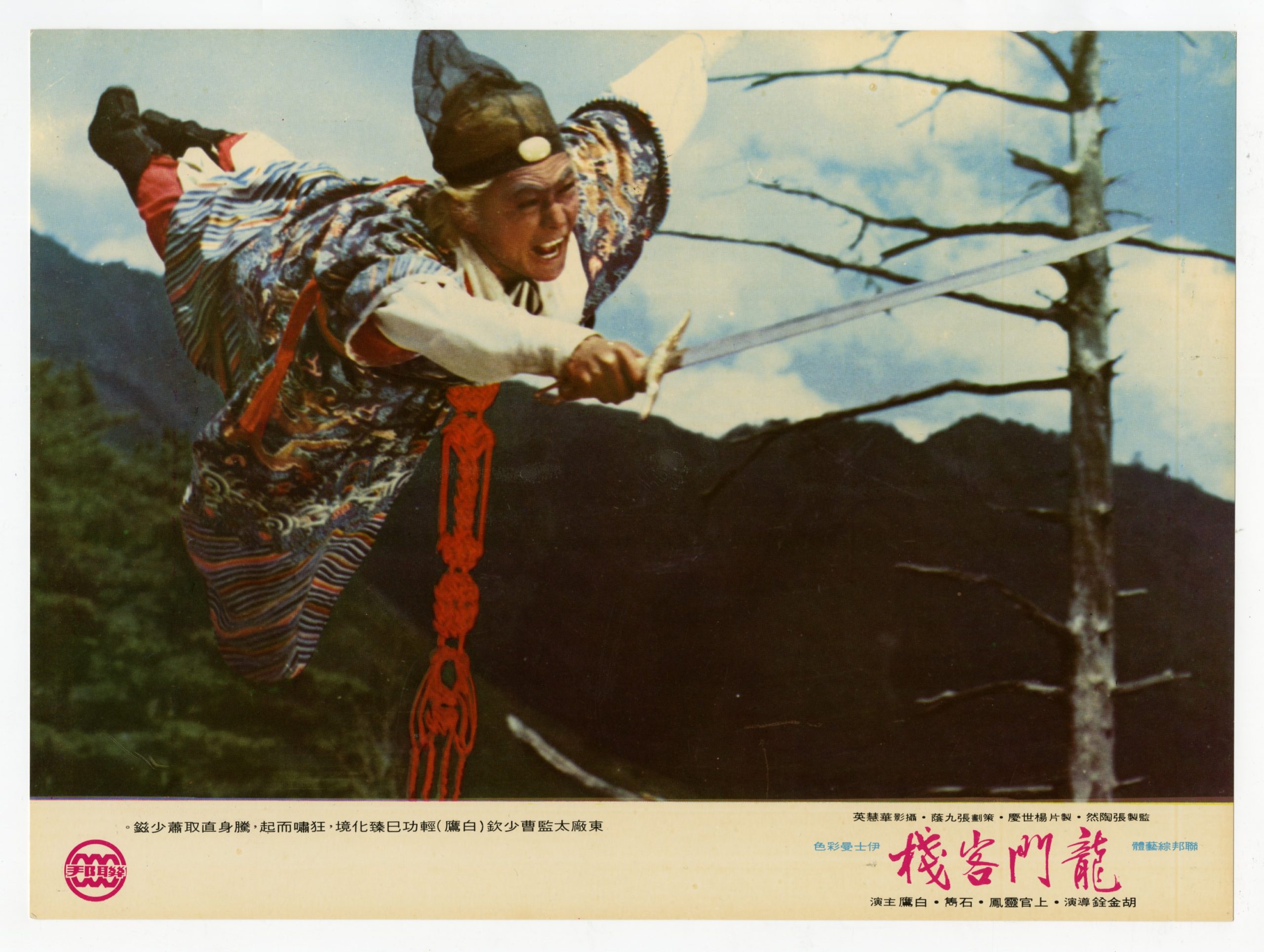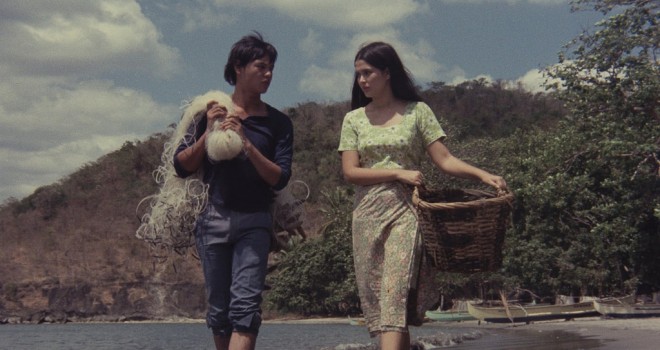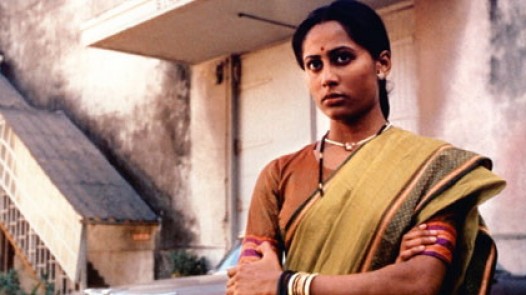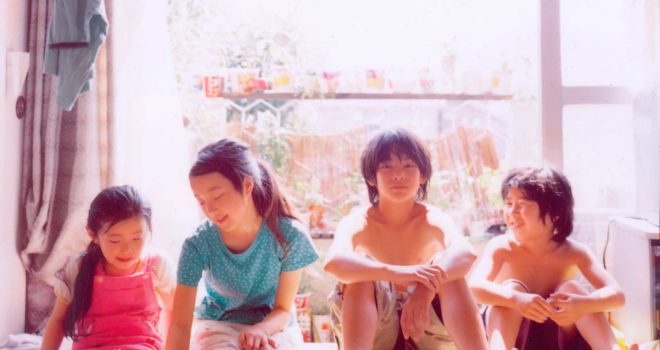Power falls into the hands of the Eunuchs, and the Dragon Gate Inn becomes the final destination for political exiles. “The wuxia film has two sources. The first, and foremost, inspired by the classical chivalric literature…. The other, less common, goes back to the origins of the Peking Opera and its martial tradition. This is the path followed by King Hu, who is attached to the sword-bearing women of the opera’s repertoire (wudan or martial heroine). The inn, starting with The Golden Swallow, then Dragon Inn and Trouble at Spring Inn, was the locale that strengthened ties with the operatic tradition. The importance of the set’s architecture, the props, the characters’ positioning, the sense of choreography and the way the shots are articulated, alternating between a love of framing and surface and the virtues of depth of field. Either the bodies are motionless but the weapon-objects fly, or the props are static and the characters’ mobility (jumping, acrobatics) brings the scene to life in coloured firework display…. But when Xu Feng, King Hu’s muse, stops running, we see her catching her breath, breathing heavily, her forehead covered with sweat, with a worried look, before she sets off again. In King Hu’s films, fortunately for us, abstraction has its limits.” (Charles Tesson, 2012, La Cinémathèque Française).
Home > Films > Dragon Inn
Dragon Inn
(Long Men Kezhan)
by King HU
- Titre français
L’Auberge du dragon - Original title
Long Men Kezhan - Titre international
Dragon Inn - Scénario
King Hu - Photo
Hua Hui-ying - Montage
Chen Hung Min - Interprétation
Lingfeng Shangguan, Chun Shih, Ying Bai - Production
Shaw Brothers - Ventes internationales
Taïwan Film Institute : mingying@mail.ctfa.org.tw - Support de projection
DCP - Sous-titrage
VOSTF - Ratio
2:35 (scope)






